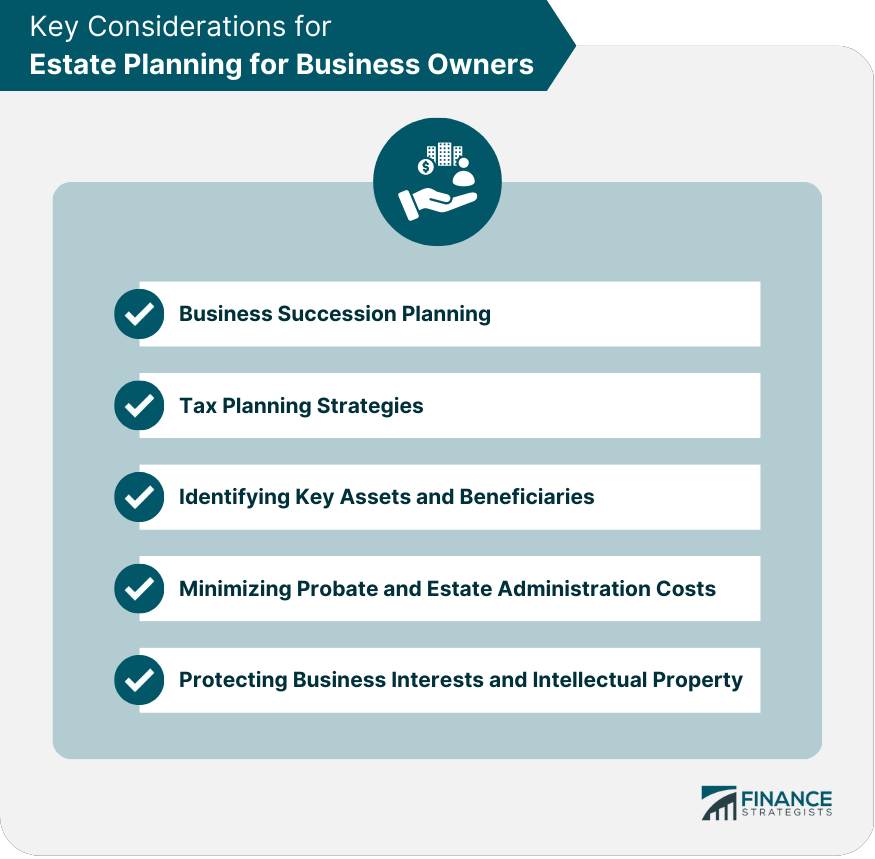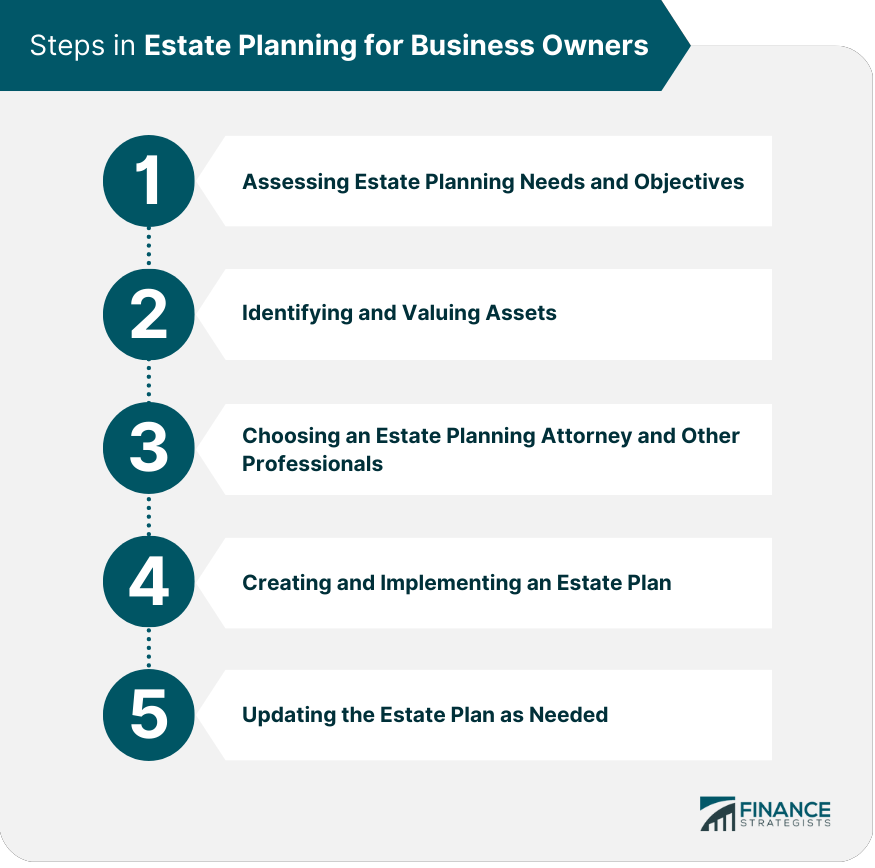Estate planning is a vital element of financial planning for everyone, but its significance is particularly magnified for business owners. Estate planning for business owners involves the planning and management of a business owner's assets in the event of their death. Business owners who want to ensure that their hard-earned assets are distributed according to their wishes and minimize the impact of taxes and other expenses should engage in estate planning.
I'm Taylor Kovar, a Certified Financial Planner (CFP), specializing in helping business owners with strategic financial planning. My expertise in Estate Planning for Business Owners revolves around creating tailored strategies that ensure smooth business succession and asset protection. By integrating living trusts, buy-sell agreements, and life insurance policies, I've helped clients like a retail business owner successfully plan for unforeseen circumstances, securing their family's future and the business's continuity. Ready to safeguard your business and family's future? Let's discuss a personalized estate plan that works for you. Contact me at (936) 899 - 5629 or [email protected] to discuss how we can achieve your financial objectives. WHY WE RECOMMEND: IDEAL CLIENTS: Business Owners, Executives & Medical Professionals FOCUS: Strategic Planning, Alternative Investments, Stock Options & Wealth Preservation When it comes to estate planning for business owners, there are several key considerations that must be taken into account. Business succession planning is an essential aspect of estate planning for business owners. Succession planning involves identifying and preparing the next generation of business leaders to ensure a smooth transition of the business's ownership and management. This may involve transferring ownership to family members or selling the business to a third party. One of the primary goals of succession planning is to minimize the potential for disputes among family members or business partners. This can be achieved by establishing a clear plan for the transfer of ownership and management, including the roles and responsibilities of each individual involved in the business. A well-designed succession plan can also ensure the continuity of the business and preserve the legacy of the business owner. Estate planning for business owners also involves identifying tax planning strategies to minimize the impact of taxes on the estate. Business owners should work with their estate planning attorney and financial advisor to identify tax-efficient strategies for transferring assets to their heirs. One of the most effective tax planning strategies for business owners is to use a combination of estate planning tools such as trusts, gifts, and life insurance policies. These tools can help to minimize estate taxes, capital gains taxes, and income taxes on the estate. Identifying key assets and beneficiaries is another critical consideration in estate planning for business owners. Business owners should take inventory of all their assets, including the business, real estate, personal property, investments, and other assets. They should also identify their beneficiaries and determine how they want their assets to be distributed among them. Business owners should consider the potential tax implications of their estate plan and how it may affect their beneficiaries. For example, if the estate plan involves transferring a business to a family member, the tax implications of such a transfer should be carefully evaluated. Probate and estate administration costs can significantly reduce the value of an estate. Business owners should work with their estate planning attorney to minimize these costs by using strategies such as trusts and other estate planning tools. A revocable living trust is an excellent tool for avoiding probate and reducing estate administration costs. Assets held in a revocable living trust are not subject to probate and can be distributed to beneficiaries without the need for court intervention. Business owners should also consider how their estate plan will protect their business interests and intellectual property. This may involve establishing trusts or other legal structures to protect the business's assets and intellectual property rights. For example, a business owner may establish a family limited partnership to transfer ownership of the business to their heirs while still retaining control over the business's operations. This helps ensure that the business continues to operate as intended and that the owner's legacy is preserved. The estate planning process involves several steps that must be carefully followed to ensure the plan is comprehensive and legally binding. The first step in estate planning for business owners is to assess their estate planning needs and objectives. This involves taking inventory of all assets and liabilities, identifying potential tax implications, and determining how the assets should be distributed among beneficiaries. Once the estate planning needs and objectives have been identified, the next step is to identify and value all assets. Business owners should take inventory of all their assets, including their business, real estate, personal property, investments, and other assets. They should also determine the value of each asset and the potential tax implications of transferring ownership. Business owners should work with an experienced estate planning attorney and other professionals, such as a financial advisor or accountant, to help them navigate the complexities of estate planning. An estate planning attorney can help business owners to create a comprehensive estate plan that addresses all their needs and objectives. The next step in estate planning is to create and implement an estate plan. The estate plan should be comprehensive and include all the necessary legal documents such as wills, trusts, powers of attorney, and health care directives. Business owners should also ensure that their beneficiaries are aware of their estate plans and understand how their assets will be distributed. Estate planning is an ongoing process, and business owners should review and update their estate plans regularly. Changes in the business or personal circumstances may require changes to the estate plan. For example, if a business owner acquires new assets or has a new child, they may need to update their estate plan to reflect these changes. Estate planning for business owners involves several legal tools that can be used to ensure the proper distribution of assets and protect business interests. A will is a legal document outlining how a person's assets will be distributed after death. A trust is a legal entity that holds assets on behalf of the beneficiaries. Trusts can be revocable or irrevocable and can be used to avoid probate and minimize estate taxes. A power of attorney is a legal document that gives a person the authority to act on behalf of another person in financial and legal matters. Business owners should consider appointing a power of attorney to manage their affairs in the event of incapacity. A health care directive, also known as a living will, is a legal document that outlines a person's wishes for medical treatment in the event of incapacity. Business owners should consider creating a health care directive to ensure that their wishes are followed if they are unable to make medical decisions for themselves. Buy-sell agreements are legal agreements between business owners that outline the terms of a buyout in the event of one owner's death or incapacity. These agreements can ensure a smooth transition of ownership and management of the business. Life insurance is an essential tool for estate planning for business owners. Life insurance can provide liquidity for the estate and ensure that the business can continue to operate after the business owner's death. Business owners should work with their financial advisors to determine the appropriate amount of life insurance coverage for their estate planning needs. Estate planning holds significant importance in financial planning for individuals, but it holds even greater importance for business owners. Business owners should consider key considerations such as business succession planning, tax planning strategies, identifying key assets and beneficiaries, minimizing probate and estate administration costs, and protecting business interests and intellectual property. The steps involved in estate planning for business owners include assessing estate planning needs and objectives, identifying and valuing assets, choosing an estate planning attorney and other professionals, creating and implementing an estate plan, and updating the estate plan as needed. Common estate planning tools for business owners include wills and trusts, powers of attorney, health care directives, buy-sell agreements, and life insurance. Business owners should work with their estate planning attorney and financial advisor to create a comprehensive estate plan that addresses all their needs and objectives. It is important to seek professional advice for estate planning to ensure that the estate plan is comprehensive and legally binding.What Is Estate Planning for Business Owners?
Hear It From Taylor

Fee-Only Financial Advisor
Certified Financial Planner™
3x Investopedia Top 100 Advisor
Author of The 5 Money Personalities & Keynote Speaker
Key Considerations for Estate Planning for Business Owners

Business Succession Planning
Tax Planning Strategies
Identifying Key Assets and Beneficiaries
Minimizing Probate and Estate Administration Costs
Protecting Business Interests and Intellectual Property
Steps in Estate Planning for Business Owners

Assessing Estate Planning Needs and Objectives
Identifying and Valuing Assets
Choosing an Estate Planning Attorney and Other Professionals
Creating and Implementing an Estate Plan
Updating the Estate Plan as Needed
Common Estate Planning Tools for Business Owners
Wills and Trusts
Powers of Attorney
Health Care Directives
Buy-Sell Agreements
Life Insurance
The Bottom Line
Estate Planning for Business Owners FAQs
Estate planning for business owners is the process of planning and managing a business owner's assets in the event of their death. It involves ensuring that their assets are distributed according to their wishes, minimizing taxes and other expenses, and protecting their business interests.
Estate planning is critical for business owners because it allows them to protect their business interests and ensure a smooth transition of ownership and management in the event of their death. It also helps to minimize the impact of taxes and other expenses and ensures that their assets are distributed according to their wishes.
Some key considerations in estate planning for business owners include business succession planning, tax planning strategies, identifying key assets and beneficiaries, minimizing probate and estate administration costs, and protecting business interests and intellectual property.
Common estate planning tools for business owners include wills and trusts, powers of attorney, health care directives, buy-sell agreements, and life insurance.
Yes, business owners should seek professional advice for estate planning. Estate planning can be complex, and there are many legal and financial considerations that must be taken into account. Working with an experienced estate planning attorney and financial advisor can help to ensure that the estate plan is comprehensive and legally binding.
True Tamplin is a published author, public speaker, CEO of UpDigital, and founder of Finance Strategists.
True is a Certified Educator in Personal Finance (CEPF®), author of The Handy Financial Ratios Guide, a member of the Society for Advancing Business Editing and Writing, contributes to his financial education site, Finance Strategists, and has spoken to various financial communities such as the CFA Institute, as well as university students like his Alma mater, Biola University, where he received a bachelor of science in business and data analytics.
To learn more about True, visit his personal website or view his author profiles on Amazon, Nasdaq and Forbes.















